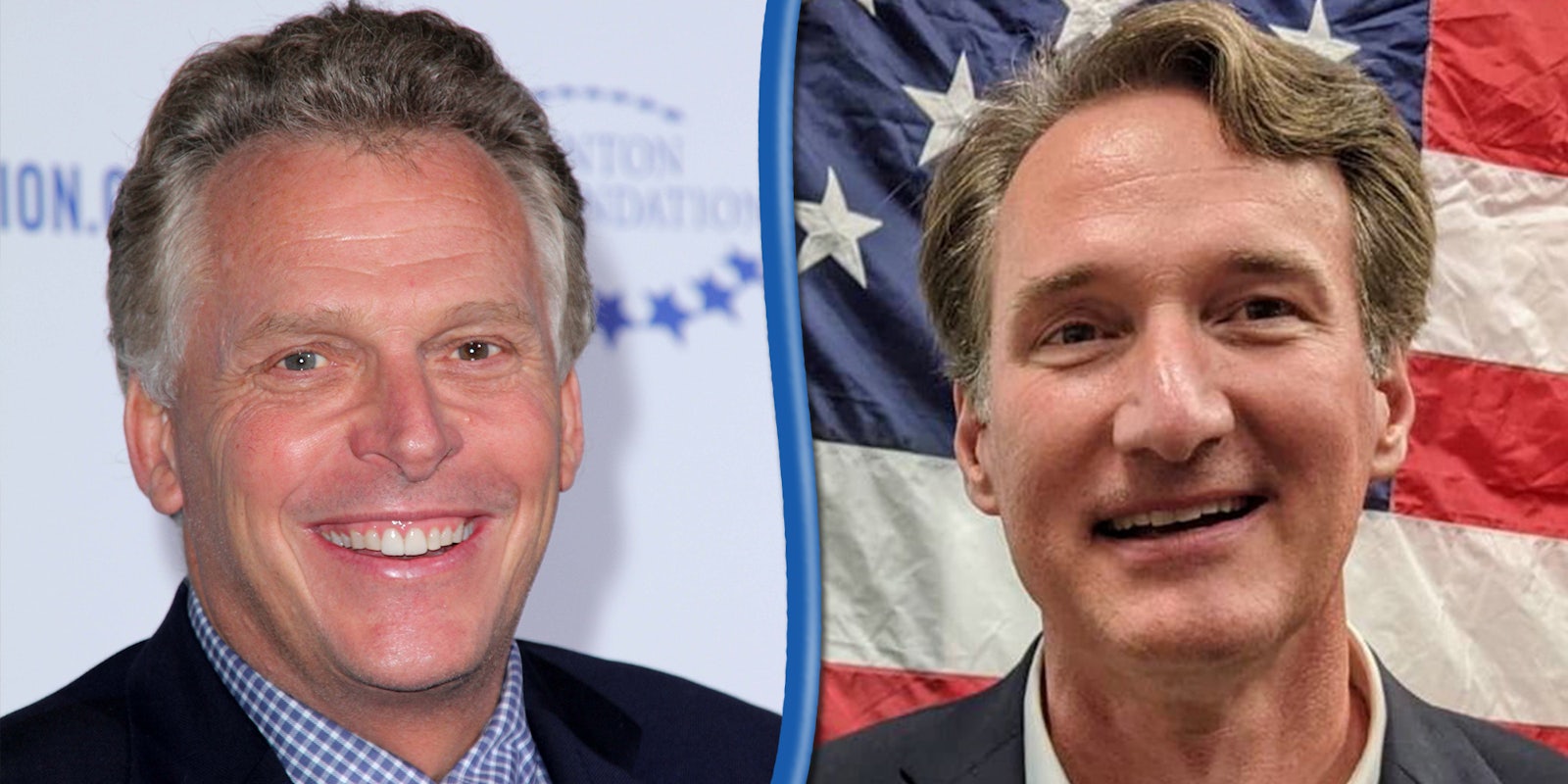Broadband connectivity has become an issue in the Virginia governor’s race, with Republican candidate Glenn Youngkin attacking former governor and once-again Democratic candidate Terry McAuliffe for not delivering on his “promise” to increase connectivity in the state.
Earlier this week, Youngkin, a former co-CEO of a global investment firm, released an attack ad against McAuliffe that centered on broadband. The ad shows former statements from McAuliffe about broadband connectivity in the state with In the Hall of the Mountain King playing in the background.
Youngkin says McAuliffe failed in his efforts to bring broadband to the state.
This isn’t the first time Youngkin has used the ad. In mid-September, the “Team Youngkin” Twitter account shared the same attack ad.
While Federal Communications Commission (FCC) maps estimate that 94.2 percent of Virginia residents have access to 25/3 Mpbs broadband, the agency’s maps have long been criticized for overestimating access. The maps use U.S. Census blocks to determine whether an area has access, but if a broadband provider reports that one home in the Census block has access, the entire block is counted as having broadband.
Other estimates, like a recent one from BroadbandNow, puts the number in Virginia at 89.04 percent. Meanwhile, a map created by the Biden administration in June shows numerous parts of the state have 25 percent or more households without internet access. A map released by LightBox, a real estate data company, last month also similarly shows large swaths of the state with sizeable amounts of residents that don’t have access.
But McAuliffe, who previously served as Virginia’s governor from 2014 to 2018, has focused on broadband issues in the past. In 2016, he signed a bill that allowed broadband providers to install fiber optic cables on state highways, according to StateScoop. In May 2016, McAuliffe also signed a bill that allowed broadband providers to install fiber along gravel roads, Loudoun Now reported at the time.
Meanwhile, he also launched the “RUOnlineVA” program around the same time. The program was a survey that allowed Virginia residents to tell officials where they lived in the state and whether they had access to the internet, as GovTech reports.
As for the current race, McAuliffe has proposed bringing “universal broadband coverage” to the state by the end of his term as governor. Meanwhile, Youngkin has suggested that Elon Musk’s StarLink program—which uses satellites to deliver internet access—was superior to laying fiber, calling the cables “humorous.”
Youngkin told Fox Business that “the idea of spending billions of dollars of taxpayer money to dig trenches is a 20-year-old solution. When in fact the private sector is figuring out how to deliver low orbit satellite technology today.”
Tom Wheeler, the former chairman of the FCC, recently wrote that fiber is the only technology currently available that can provide 100/100 Mbps service, a standard that the government has suggested should be the new baseline for the minimum speed to qualify as “high-speed internet.”
However, as many people noted online, Youngkin’s attack on McAuliffe about broadband leaves out a key bit of context.
While McAuliffe was governor from January 2014 to January 2018, the state had a Republican Senate and House for most of that time. In 2014, the state had McAuliffe, a Democrat, as governor, and a Democratic-controlled Senate and Republican-controlled House. In between 2015 and 2018, both chambers of the state’s government were controlled by Republicans.
So pinning a perceived lack of movement on broadband by McAuliffe leaves out that context—the governor signs bills that make it through the state legislature.
Polls from Real Clear Politics, which aggregates various polls to give an average, show McAuliffe leading Youngkin 48.8 to 45.4 in the race.
Read more about internet rights
| ISPs won’t quit trying to derail California’s ‘gold standard’ net neutrality law |
| A new bill might force data brokers to delete everything they have on you |
| Congress barrels forward with EARN IT Act, determined to end encrypted messaging online |
| FCC agrees to crack down on ‘sweetheart deals’ that restrict broadband choice in apartments, condos |
| Sign up to receive the Daily Dot’s Internet Insider newsletter for urgent news from the frontline of online. |


